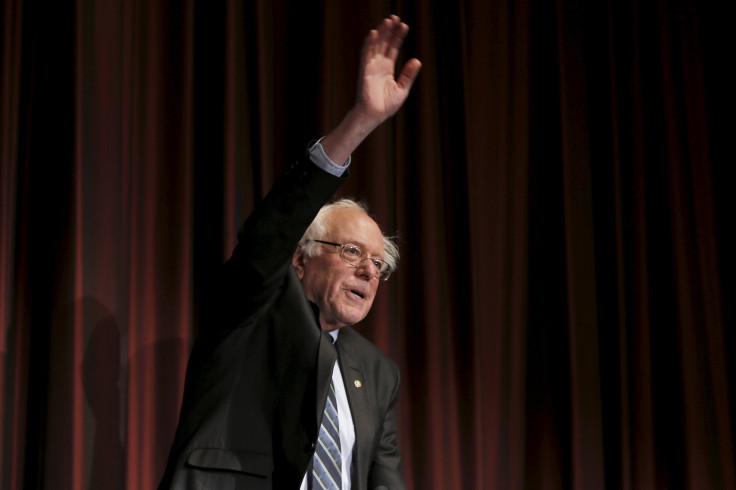Who Is Bernie Sanders? 5 Things To Know About US Senator’s Politics Ahead Of Official Presidential Candidacy

Hillary Clinton now has an official challenge from the left in the person of U.S. Sen. Bernard Sanders, the independent from Vermont, who is expected to announce Thursday his intent to enter the Democratic presidential primaries. The statement will be followed by a campaign kickoff in Vermont within weeks, reports Vermont Public Radio.
Sanders, 73, a native of Brooklyn, New York, whose self-described socialist politics have made him something of an outlier in the Senate, is the longest-serving independent in the history of Congress, but caucuses with the Democrats and had a committee chairmanship (Veterans Affairs) when they were in the majority. He is now the ranking minority member of the powerful Budget Committee. The Vermont Democrats have not run a candidate against him in years, and he has easily defeated Republican challengers.
“Socialism brings Sanders instant novelty in Washington and, in many circles, instant dismissal as a freak,” New York Times journalist Mark Leibovich wrote in 2007, the year Sanders ascended to the Senate after 16 years as Vermont's sole congressman. “But Sanders’s outcast status in Washington probably owes as much to his jackhammer style as to any stubborn ideology.”
Sanders has been a supporter of rights for gay, lesbian and transgender Americans, including same-sex marriage. He is a champion of abortion rights, labor unions and a single-payer healthcare system, and a fierce critic of income inequality.
In an interview last week with Vermont Public Radio, Sanders said the issues Democratic candidates like Clinton should address are income inequality and international trade. “If you want to understand why the middle class in America is disappearing and why we have more wealth and income inequality in America than we have had since the late 1920s, you have to address the issue of trade,” he said. Sanders opposes President Barack Obama’s latest Trans-Pacific Partnership trade proposal, which he said would send hundreds of thousands of jobs overseas and hurt working-class Americans.
Here are five things to know about Sanders political platform.
1. Sanders has been a staunch critic of Wall Street and big business. Sanders voted against the government bailout of Wall Street in 2008. "If you were to speak to any audience in America and you say, 'There's something wrong with our system when the crooks on Wall Street, through their recklessness and criminal behavior, are able to cause a recession, which has resulted in so much suffering to people. Then they get bailed out by the American people and then three years later end up making more money than they ever have before,' people go nuts!" he told the Guardian in 2011.
2. Sanders’ nine-hour speech on the Senate floor in 2010 went viral. Social media went berserk over Sanders’ speech against tax cuts for the wealthy, a deal he called “Robin Hood in reverse.” He even got his own hashtag: #Filibernie.
3. He strongly opposes the Keystone XL pipeline. “With the scientific community telling us loudly and clearly that we must transform our energy system away from fossil fuels if we are to combat climate change, it is totally crazy for the Congress to support the production and transportation of some of the dirtiest oil on the planet,” Sanders said in a statement following the bill’s passage.
4. Sanders has co-sponsored medical marijuana policies. Sanders supported legislation that would have changed marijuana from a Schedule I drug to a Schedule II drug, meaning states that have legalized marijuana would no longer face federal interference.
5. He advocates a European-style approach to universal health care. Sanders called the Affordable Care Act, also known as Obamacare, which Congress passed in 2010, a “good Republican program,” referring to Mitt Romney’s precursor in Massachusetts. That program was a model for the development of Obamacare. Sanders has argued for a single-payer Medicare program, similar to those in Canada and Europe. He said the U.S. is the “only nation in the entire industrial world that doesn’t guarantee healthcare as a right.”
© Copyright IBTimes 2024. All rights reserved.





















